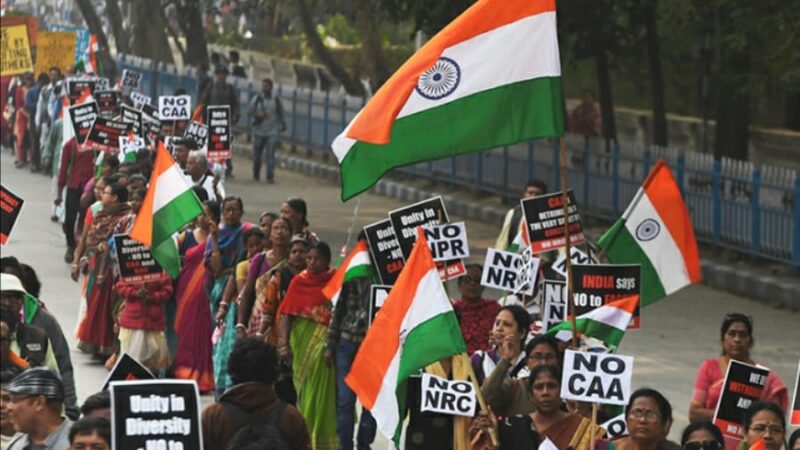Why Atheism Can Be Liberating For Indian Feminists

Societal, patriarchal expectations impose themselves upon women right from the very time when they are little girls. Stereotypes are abundant, double standards prominent and for most women, this transcends into adult life, too. However, in a country like India, highly dominated by religion, it’s hard to discern the nuances of Hinduism (and other religions) from patriarchy. Indeed, after a point, they are interwoven so tightly, that they cannot be disentangled. Which is why, shortly after I actualised as a feminist, I actualised as an atheist. I’m not saying that you shouldn’t attain spiritual peace, no, nothing of that sort. But if you are a theist, and refuse to acknowledge that religion, along with the patriarchy that has arisen from it, is one of the foundations of sexism, you are being complicit in your own commodification. Take, for example, menstruation. Usually when a girl menstruates for the first time, there is some sort of ceremony to commemorate it. It’s a larger affair in rural, more backward parts of the country, but imagine my horror when my mother and grandmother performed a mini-aarthi when I began menstruating. And why wouldn’t I be horrified? Look at it from the point of view of a confused 13 year old who has just discovered an opening in her body that spouts blood. Right from the age of 10, I was told how horrifying periods were, how terrible the pain would be, how I would be rendered a cripple once the cramps got to me. How utterly disgusting the process was, how I wouldn’t be allowed to enter the kitchen, how I couldn’t go to temples, how I couldn’t light the diya in the puja room, and a slew of other things that were akin to sacrilege. And then there they were, performing an aarti, telling me that they were so happy I could have children. Children?!!??! What 13 year old wants children?!? My first, formative experience regarding sexism in religion occurred at the age of five, long before my induction into feminism. I’m Tamilian, and we have a ceremony called nombu. The women of the house tie a yellow thread around their neck, and pray for the long lives of their husbands. Unmarried girls pray for good husbands. Notice how religion taught me that I have to hope and pray for a decent husband, and notice how it taught my brother that a good wife is his right. When I was slightly older, and in a temple, I asked my grandmother why there were no women priests. She took me out of the temple, because an honest question had caused 8 people sitting around me to gasp. Women are expected to be dutifully religious, but the mention of a religious woman with authority is enough to make people gasp. I mean, it’s not even like I suggested allowing menstruating women into the temple. I could go on and on about Hinduism- the irony of Ashtami and Durga Puja, the devdasi culture, dowry, horrifying instances of modern day sati, etc. However, Google “what does the Bible say about women”, and you’re most likely to get something like- Timothy 2:11-15 : Let a woman learn quietly with all submissiveness. I do not permit a woman to teach or to exercise authority over a man; rather, she is to remain quiet. For Adam was formed first, then Eve; and Adam was not deceived, but the woman was deceived and became a transgressor. Yet she will be saved through childbearing—if they continue in faith and love and holiness, with self-control. And- Corinthians 14:34-35 : The women should keep silent in the churches. For they are not permitted to speak, but should be in submission, as the Law also says. If there is anything they desire to learn, let them ask their husbands at home. For it is shameful for a woman to speak in church. I mean, what even? Also, Islam. Which, when left to the fanatics, results in ISIS and modern day sex slavery. My point remains; it is nearly impossible to be an outspoken feminist while also adhering to religion. Discarding my religion did something else. It made me realise that I was a miracle, God wasn’t. I had to be miraculous, God didn’t. The minute you look at religion as a separate entity, the more you will critically analyse it’s adverse effects. Most importantly, for me, atheism reinforced the independence that feminism gave me in the first place. ——————– About the Author: This article is contributed by Aditi Mukund, our intern.






